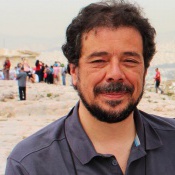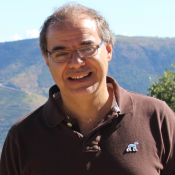Geographical variation in Turtle dove [Streptopelia turtur (L.)] abundance and breeding biology. Implicationsn for game managment
The Turtle Dove (Streptopelia turtur)is a trans-saharan migrant witch breeds in the palearctic region. The European breeding population of this species declined in the last decades in some countries in Europe, including Portugal. This situation has lead to the inclusion of this species in several international conservation Directives and Conventions (as SPEC 3 - D) and in the List of Endangered Species in Portugal, being classified as vulnerable.
In Portugal it is an important game species, being hunted during the autumn migration. Recent studies on physiological indices (eg. crop gland activity) suggest an overlap between the late season nesting activity and the hunting period. Consequently, the desirability of hunting Turtle Doves when a proportion of the adult population apparently is breeding has been questioned by both hunters and conservationists. Information on potentially regional patterns of distribution, abundance and the significance of late nesting should allow the implementation of future game management measures based on more solid scientific criteria, fulfilling the needs presented on the European management plan dated from 1998.
The global aim of this project was to analyse the geographical variation in Turtle Dove abundance and breeding biology in Portugal and its implications to game management. The specific objectives were:1 - to develop explanatory and predictive models of the relationships between turtle dove abundance and several geographic and climatic parameters as well as land use, at a national level (general approach); 2 - to investigate the geographic variation on breeding chronology and biology, particularly on late season nesting activity;3 - to evaluate the implications of the overlap between late breeding and hunting season; 4 - to propose management prescriptions and suggestions to possible include in a future management plan at a national and international level. Results are still been analysed and publications prepared.

Pedro Beja
Francisco Manuel Cardoso de Castro Rego (PI), Francisco Manuel Ribeiro Ferraria Moreira, Rui Jorge Lopes Borralho, António Carlos Ferrão Ribeiro da Silva, António Luis Soares Barreto, João Filipe Flores Bugalho
